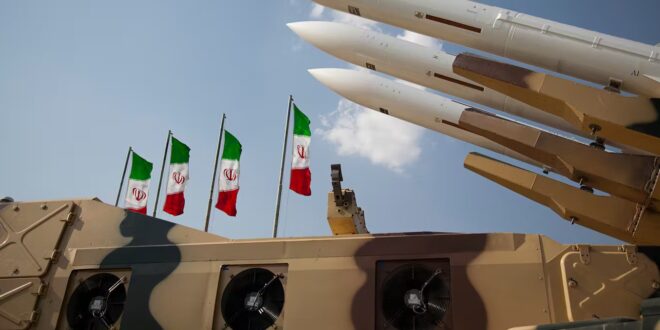As midnight approached on April 13, over 300 weapons were launched from Iran towards Israel. This included 185 drones, 110 ballistic missiles and 36 cruise missiles. The vast majority were shot down by Israel’s Iron Dome air defence system with help from the UK, the US and neighbouring Jordan.
The lack of impact on the ground has led many to describe the attack as a tactical failure. But the first direct assault on Israel by Iran may well turn out to be a strategic success. The timing of the strike is crucial, orchestrated to expose divisions both within Israel and between Israel and the US.
Over the Easter weekend, tens of thousands of people took to the streets in several Israeli cities to protest against the government. They called for the removal of the prime minister, Benjamin Netanyahu, primarily over the lack of progress being made in securing the release of hostages still held by Hamas in Gaza.
The protesters see Netanyahu as an obstacle to a deal that sees the hostages released. He has consistently refused to negotiate with Hamas, saying that total victory over Hamas, not negotiations, is what will win the hostages’ release. The mother of one of those taken captive has described Netanyahu’s handling of the hostage situation as “incomprehensible and criminal”.
The problem is that Netanyahu is trying to maintain a fragile coalition that represents fractured views across Israeli politics. Regardless of whether a deal could potentially be reached, hardline elements of the coalition have been pushing for a full-scale assault on the city of Rafah in southern Gaza to remove Hamas battalions.
Netanyahu has publicly stated that “there is no way to do this without a ground incursion”. The Israeli government has also issued a number of public statements and ultimatums that it will launch an assault on Rafah if the hostages are not released, and that it is necessary to achieve the stated objective of victory over Hamas.
So far, Israel has refrained from attacking the city. But the Iranian attack is likely to add further pressure to Netanyahu’s government for the lack of resolution to the hostage situation, and the refusal to enter Rafah and finish Hamas.
How Israel chooses to engage with the remnants of Hamas and achieves the release of the hostages has the potential to further sour its relationship with the US, which has become strained over the past month.
Pressure on Netanyahu
Domestic pressures aside, the US has exerted its influence on Israel over the potential humanitarian implications of a full-scale assault on Rafah. Despite recent statements from President Biden that US support for Israel is “ironclad”, there is evidence of division.
The clearest signal is Washington’s decision to abstain from voting on UN security council resolution 2728, which calls for a ceasefire in Gaza. This is despite previously vetoing resolutions that called for a ceasefire in February and December, as well as a resolution on October 18 calling for a humanitarian pause.
In fact, the US has vetoed resolutions critical of Israel more than any other council member. Since 1945, the US has vetoed a total of 89 Security Council resolutions, and 45 have been to support Israel.
The rationale for not vetoing 2728 relates to concerns regarding the potential Rafah offensive. It signals to Israel that the ironclad guarantee of the US is not a blank cheque. Rather, Israeli actions have to be in accordance with what the US deems to be acceptable.
How Israel chooses to respond to the Iranian drone attack, therefore, has the potential to generate further friction in its relationship with the US. Biden has urged Israel to exercise restraint in its response, and has made clear that the US would not participate in a retaliatory strike on Iran – a position that has since been reinforced by the UK.
Israel has shown restraint when faced with aggression before. During the 1990–91 Persian Gulf war, the then president of Iraq, Saddam Hussein, targeted Israeli cities with missiles. It was an attempt to force an Israeli response and fracture the US–Arab Alliance that was seeking to expel the invading Iraqi army from Kuwait.
The US applied immense pressure on Israel to not retaliate, and provided Israel with Patriot tactical air defence systems – the US Army’s primary air and missile defence system. But will Israel be amenable to such pressure being applied today?
Deterrence renewed?
Allowing the Iranian strike to go unpunished is unlikely to be beneficial to Israel’s own deterrence posture. Netanyahu has to balance the direct response to Iran with his response to the continuing conflict in Gaza. There’s a danger of spiralling escalation with Iran that reaches a point where it can no longer be contained.
Israel’s allies have a fine line to tread between ensuring their goals of averting a humanitarian catastrophe in Rafah and weakening an ally to the extent it is unable to function effectively and exercise control of its sovereignty.
Only time will tell if Iran has pulled off a strategic success. But what is clear is that the attack has created a headache for the Netanyahu coalition.
 Eurasia Press & News
Eurasia Press & News


